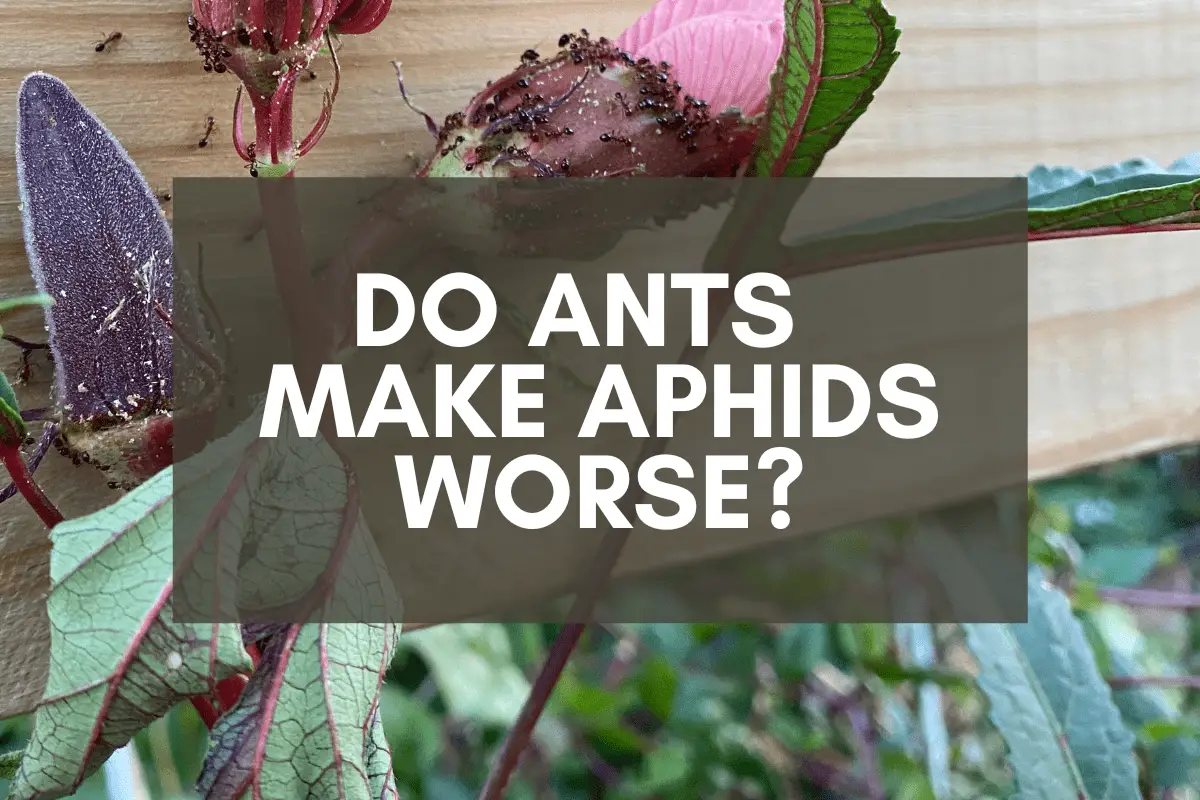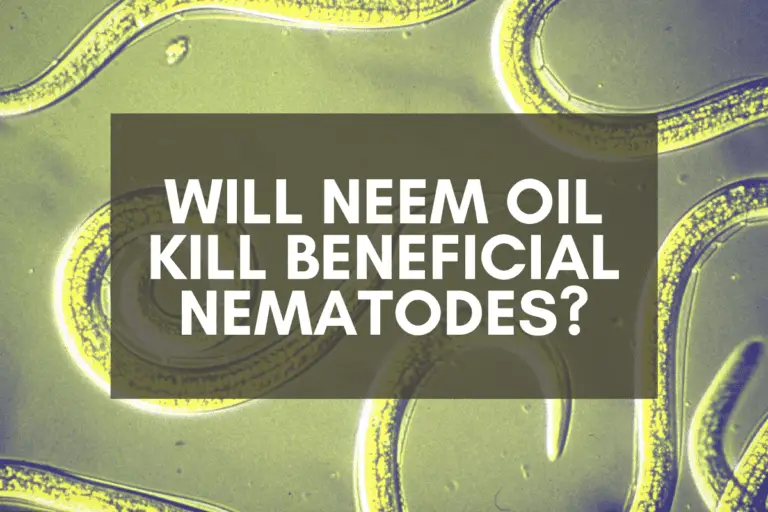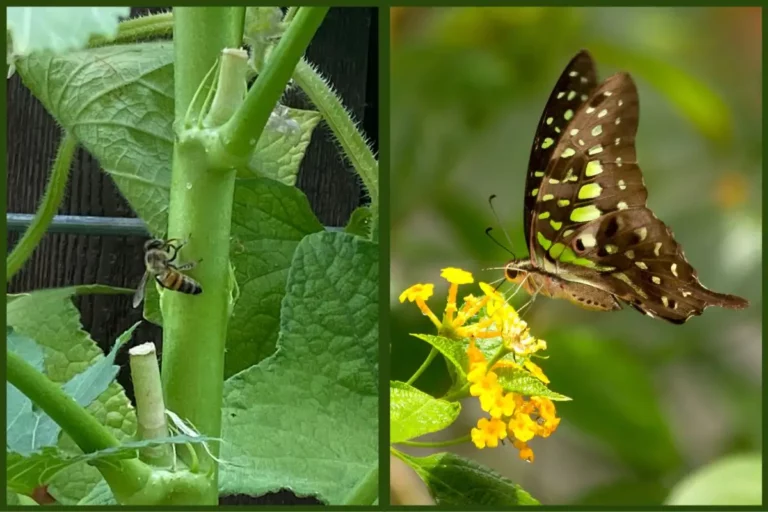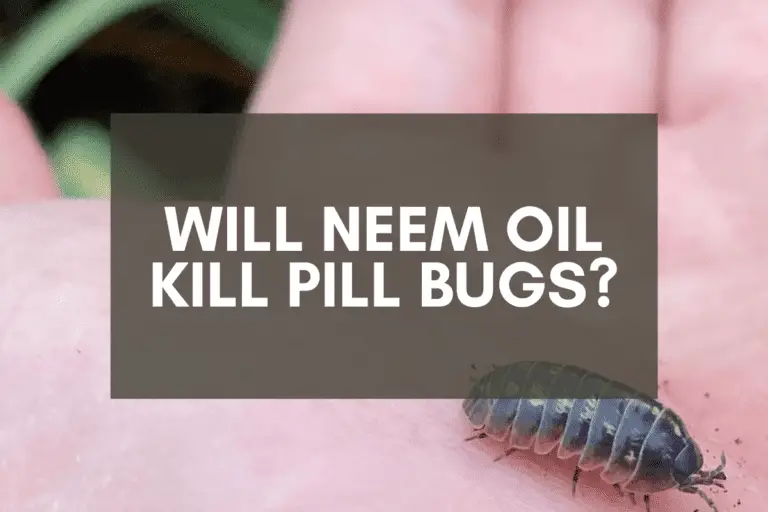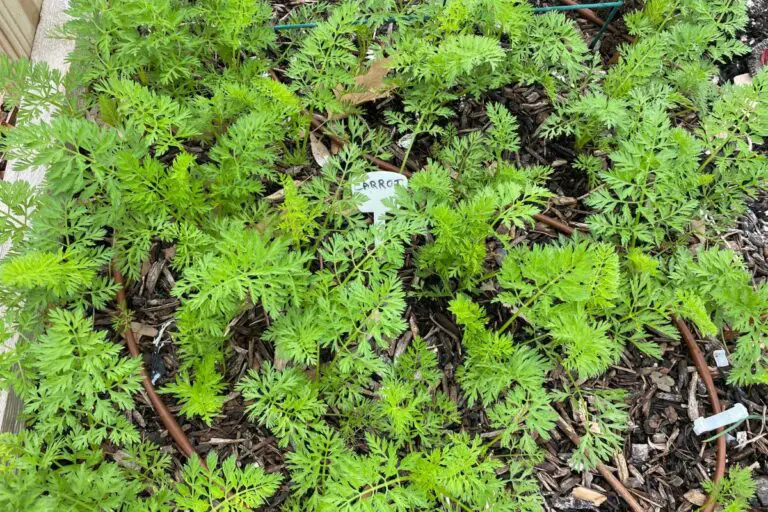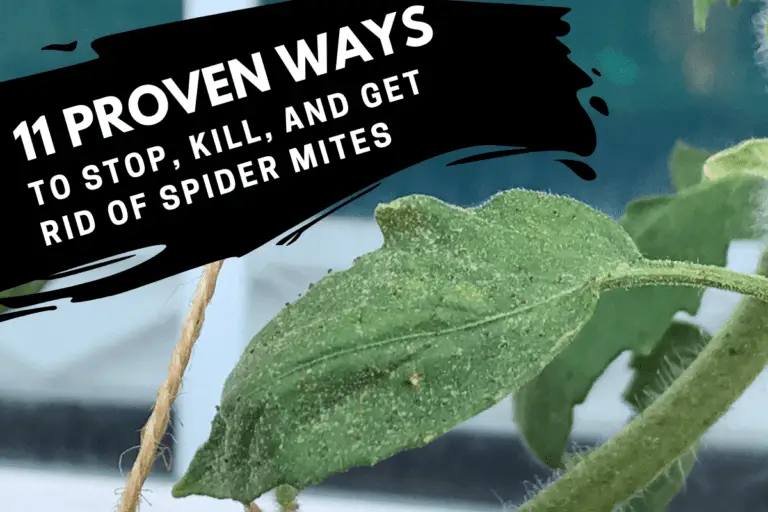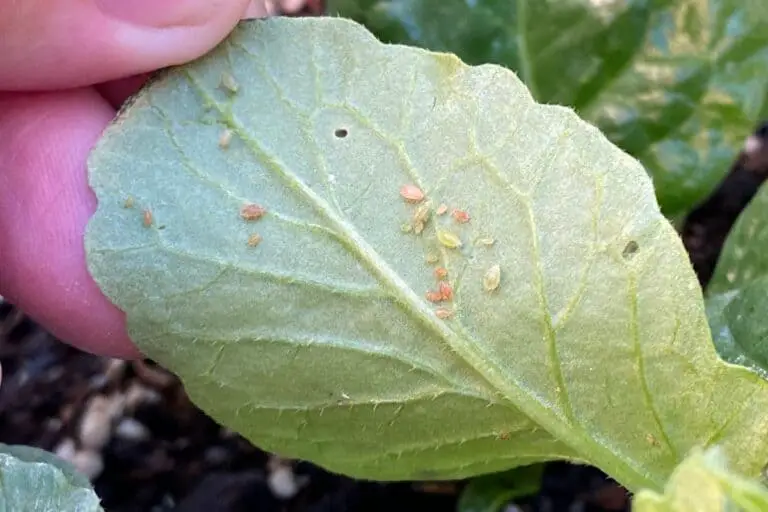Do Ants Make Aphids Worse? 7 Behaviors to Understand
If you’ve had any experience with aphids, you’ve likely read somewhere that ants are particularly fond of them or, like me, you’ve noticed ants roaming among and around aphid-infested plants.
But what exactly do ants do to aphids? Do they make aphid infestations worse?
Ants will generally worsen aphid infestations whenever they show up. They’ll protect aphids against predators and disease, nurture and sustain aphid populations, and help ensure the colony’s survival throughout winter to guarantee ongoing access to the sugary honeydew droplets that aphids produce.
What’s interesting about the symbiotic relationship between ants and aphids is that ants will occasionally engage in behaviors that are helpful to gardeners, like when they chew off the wings of winged aphids in order to keep them from leaving their host plants and flying to new locations.
Initially, this would seem like a boon to gardeners since flying aphids spread aphid colonies–and whatever diseases aphids might be carrying at the time–from one place to another. But in reality, ants aren’t helping us out one bit because their main priority is the continuation of the aphid colony.
As studies have shown, ants often protect aphids, and aphids ultimately benefit from having ant attendants even if the terms of the symbiotic relationship are largely dictated by ants.
To understand why you’ve got a problem in your garden if you see ants intermixing with aphids, let’s look at 7 ways that ants make aphid infestations worse.
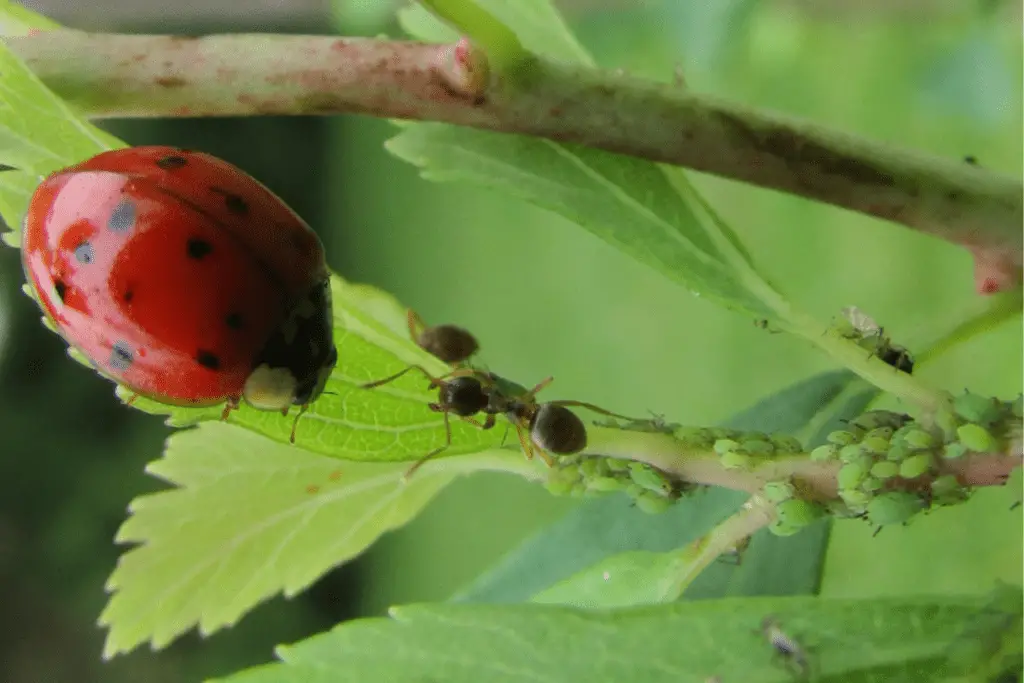
1. Ants Kill Predatory Bugs
One of the most effective weapons you have against invasive aphids isn’t an insecticide. It’s nature.
If you’ve worked to grow a variety of plants, you’ve likely laid a good foundation when it comes to attracting pollinators and other bugs (both good and bad) to your property. In an ideal environment, the bad bugs arrive to eat your plants, but the good bugs arrive shortly thereafter, attracted by the possibility of feasting on your garden pests.
Unfortunately, ants interfere with this process when it comes to aphid colonies. Normally, aphids would be preyed upon by ladybugs, lacewing larvae, hover flies, and other predatory bugs, but when ants are present, they kill off aphid predators in order to protect aphids and thus ensure their ongoing access to honeydew droplets, which aphids secrete while feeding on plant tissue.
In fact, researchers have shown that aphids actually increase ants’ aggressiveness through a dopamine that’s transmitted via honeydew droplets.
In other words, not only do ants protect aphids. They also grow more aggressive by doing so.
2. Ants Protect Aphids from Disease
As research has shown, ants are incredibly adept groomers. They can recognize fungal problems on themselves, their fellow ants, and other insects, and they’re able to engage in grooming so as to remove and get rid of the fungal spores.
This is important to understand when it comes to aphids because aphids can be killed by fungi. But when ants are present, they’re able to either remove the aphid from the colony (as discussed below) or groom it to clear away the fungal spore and thus prevent infection, as this study suggests.
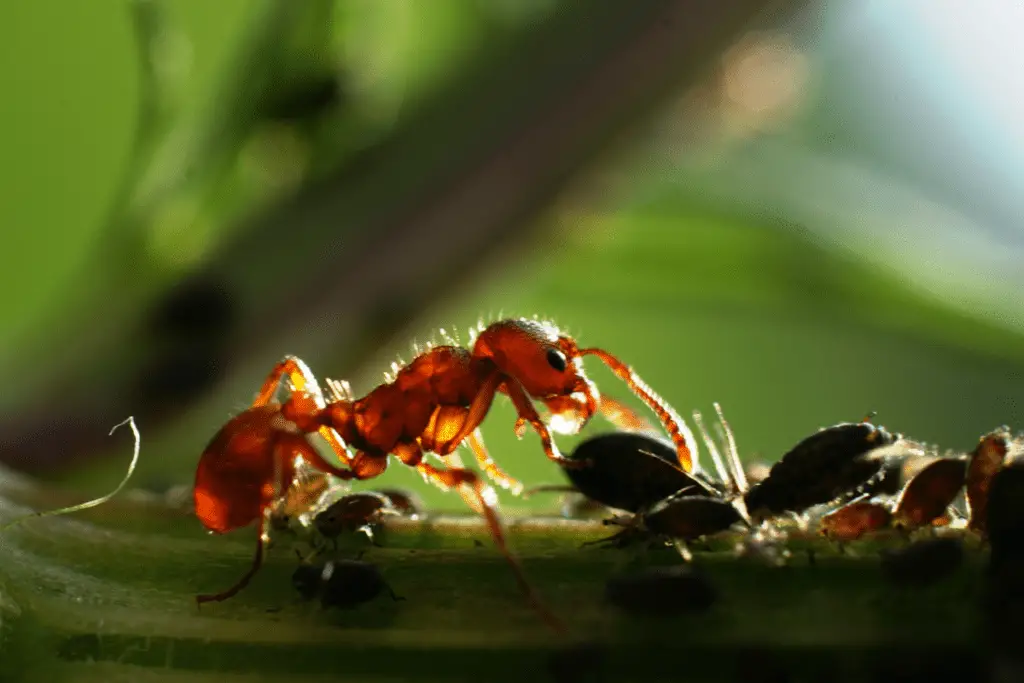
3. Ants Move Aphids
In one study, researchers watched as ants detected fungal-infected aphids and quickly removed them from the colony. These aphids had already been infected, so the ants didn’t have the opportunity to groom them.
Not only were these ants able to recognize aphids that had been infected by fungal spores. They were also remarkably efficient in removing such aphids from the general vicinity of other aphids. In fact, they generally removed infected aphids from the host plant entirely, ensuring that the fungal infection wouldn’t spread among remaining aphids.
4. Ants Encourage Aphid Population Growth
When ants are attending aphids, they have 2 overlapping priorities.
On the one hand, they wish to secure as many aphid honeydew droplets as possible, which means doing whatever’s necessary to protect the aphids and thus increase the size of the aphid colony.
On the other hand, they tend to selectively cull aphids because they have strong preferences in terms of honeydew, and they also recognize, at some instinctive level, that aphid colonies do best when plants have healthy foliage for aphids to feed on.
I’ve noticed that some bloggers get a little careless on this point in that they seem to imply that ants always care for aphids. But this isn’t the case. As I’ve noted in this article on whether ants kill or eat aphids, ants often prey on aphids when certain environmental conditions compel them to do so.
If ants decide that they prefer one aphid species over another, studies show that they’ll allow that species to grow in size while preying on the other species to reduce their numbers.
5. Ants Selectively Cull Aphids
Ants will also engage in selective predation in order to optimize aphid population numbers and thus generate the most honeydew while also ensuring that aphids had access to healthy plant tissue.
In one study, ants recognize that one kind of aphid (the green variety of Macrosiphoniella yomogicola) produced better honeydew while other aphids (the red variety of Macrosiphoniella yomogicola) kept plants from flowering, which would result in the collapse of the aphid colony.
What the ants did was remarkable: They maintained a balance through selective culling, keeping the green aphid population at 65% and the red aphid population at 35%. They could thus harvest their preferred honeydew while also maintaining enough plant health to keep the aphid colony intact.
6. Ants Keep Colonies Intact
As studies have shown, ants leave behind trace chemicals in their footsteps that slow down, and even freeze in place, any aphids that happen to come into contact with them. This signals to aphids that there are attending ants nearby and also helps ants by reducing aphid dispersal via walking or flying.
But ants will go beyond merely freezing aphids in place.
If ants sense that plants can no longer provide the necessary sustenance for aphid survival–and if another healthier plant is located in proximity to the less-than-healthy one–ants will move aphids from one plant to the next so that the aphids don’t die off due to lack of sustenance.
7. Ants Help Aphids Survive Winter Weather
Not only will ants physically relocate adult and nymph aphids. They’ll also remove aphid eggs when they feel that winter weather might otherwise destroy the colony.
In a particularly interesting study, ants were observed collecting and cleaning practically all aphid eggs they could find, then storing them in their nests for safe keeping.
Aphid eggs that weren’t attended by ants experienced high mortality rates due to fungal diseases, which meant that ants were not only protecting eggs from the elements but also keeping them clean so as to increase the larvae’s odds of survival.
Do Ants Harm Aphids?
As much as ants tend to, protect, and care for aphids, I don’t want to imply that that’s all they do.
In fact, as I’ve noted in this article on ants’ predatory behaviors, they’ll prey on aphids given the right environmental circumstances.
Ants will kill aphids for several reasons. When faced with food scarcity, ants will sacrifice aphids to feed their young. They’ll also prey on aphids that produce less-preferred honeydew as well as diseased or dying aphids, not to mention selectively culling aphids to maintain desired populations.
Surprisingly, ants can tell when an aphid has been attended to by another ant and will often leave that aphid alone to prey on otherwise unattended aphids.
Ants are also able to recognize the effects aphids have on plants and have demonstrated a remarkable ability to balance short-term desires (maximum honeydew production) with long-term objectives (maintaining plant and colony health).
Where Do Aphids Come From?
If you’ve seen aphids on your property, either clustered by themselves or attended to by ants, you might have wondered where they came from, as I did the first time I dealt with them in my garden.
I’ve written quite a bit about where aphids come from and how they spread from plant to plant, but here’s the quick overview:
You’ll never be able to tell what kinds of aphids have arrived on your property or where exactly they came from, but aphids will typically arrive in 1 of 3 ways.
First, aphids will migrate via winged aphids who leave their host plants to find new plants and spread the colony further.
Second, aphids will overwinter in eggs, then emerge once the weather outside warms up sufficiently.
Third, aphids have the ability to slowly crawl their way from one plant to another, although this doesn’t account for the majority of aphid appearances since aphids generally prefer to cluster and remain in place while feeding.
If you’ve got aphids on your plants—and especially if you’ve see ants among them—you’ll want to get rid of those aphids as quickly as possible.
I’ve written extensively about the methods you might use in my articles on black aphids, green aphids, white aphids, red aphids, and yellow aphids, so you can check out these articles for information about how I’ve successfully cleared aphids out of my garden.
Further Reading
I’ve written several articles about ant-aphid symbiosis, as well as other aphid-related topics that might be of interest to gardeners, so if you want to know more, take a look here:
